Charts 1 to 6 below provide a statistical summary of EU tropical timber imports between January 2015 and November 2018 according to the status of FLEGT VPAs between tropical partner countries and the EU at the end of that period.
Technical notes are provided below the charts.
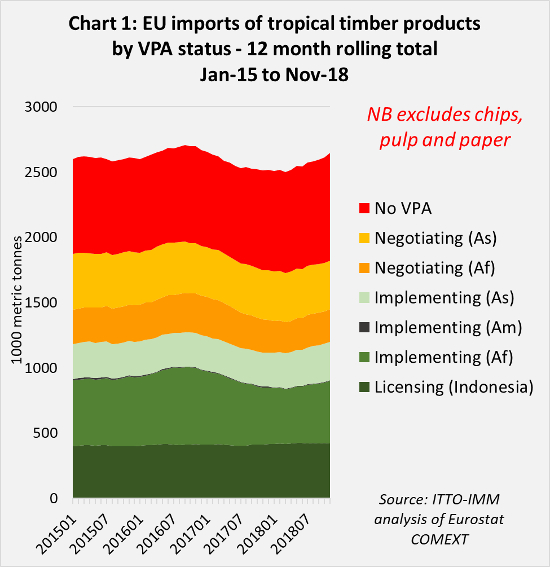
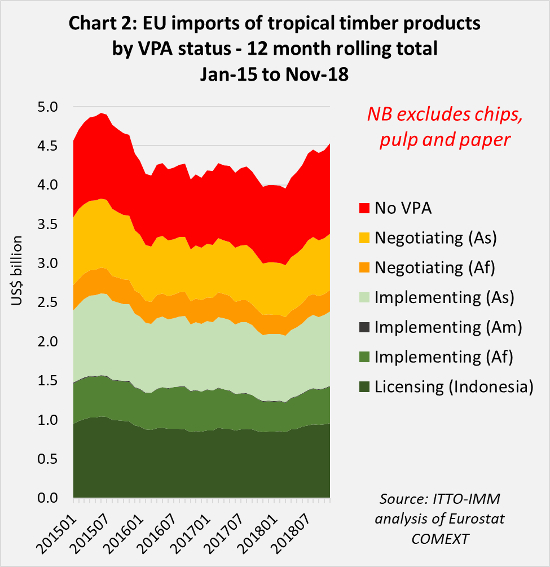
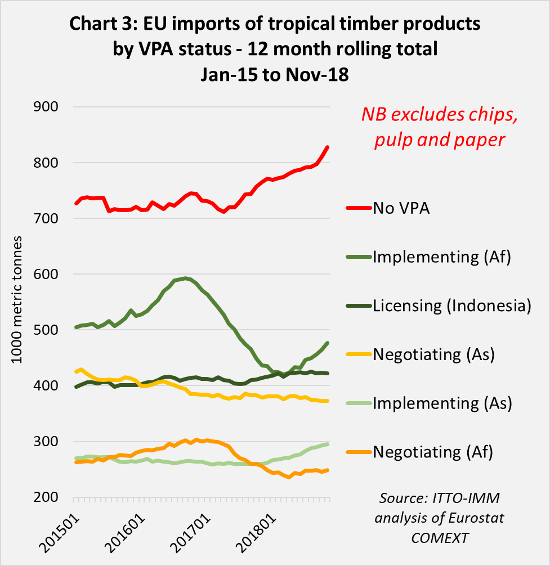
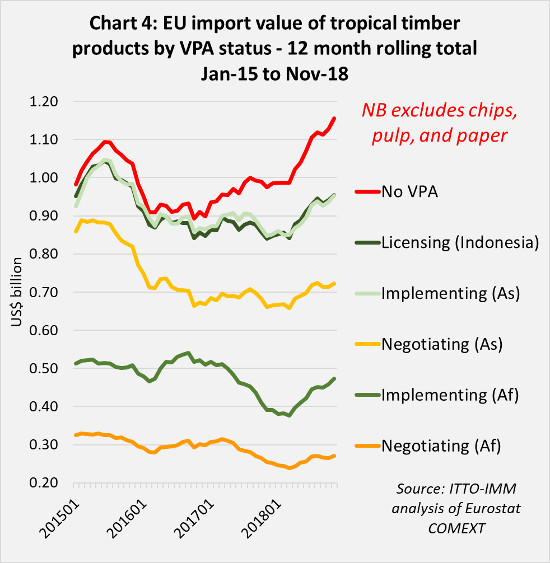
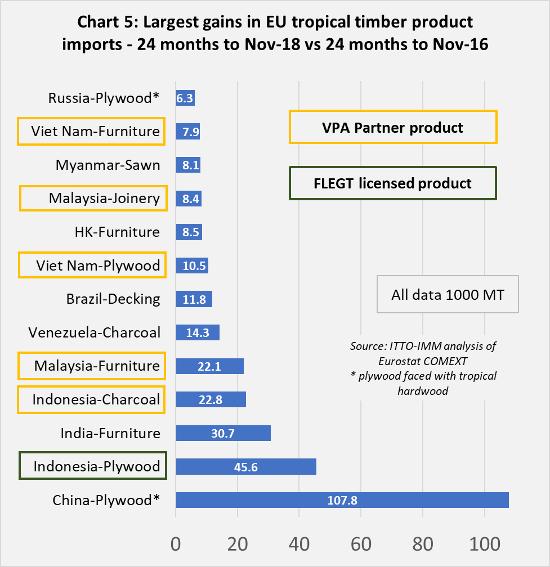
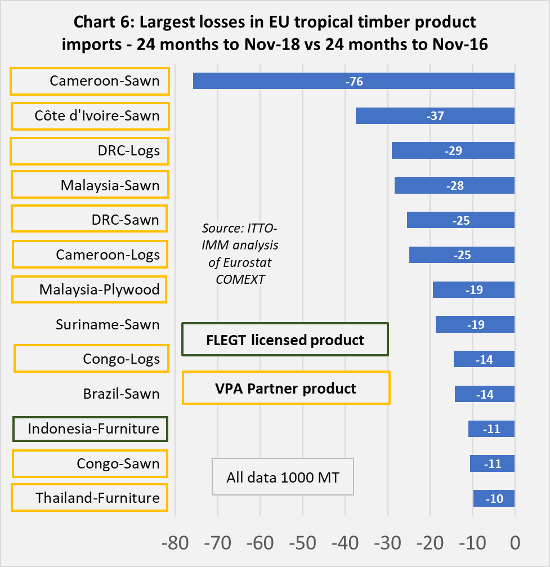
Technical notes
Tropical countries in Charts 1 to 4 are categorised as:
- “FLEGT licensing” that were issuing licenses (only Indonesia);
- “VPA implementing” that have ratified a VPA but not yet finalised a licensing system, including: Vietnam in Asia (As); Cameroon, Central African Republic, Congo Republic, Ghana, and Liberia in Africa (Af); and Honduras and Guyana in Latin America (Am).
- “VPA negotiating” that are engaged in formal VPA negotiations but have yet to sign an agreement, including: Côte d’Ivoire, Democratic Republic of the Congo, and Gabon in Africa (Af); and Laos, Malaysia, and Thailand in Asia (As)
- “No-VPA”, all other countries supplying tropical timber products to the EU, the most significant (in terms of the value of EU imports in 2018) being: India (wood furniture); Brazil (sawnwood and decking); China (tropical hardwood plywood); Myanmar (sawnwood); and Nigeria (charcoal).
Data is derived from the Eurostat COMEXT database and refers to total tropical timber imports into the 28 EU member states from outside the EU and excludes internal EU trade. To iron out sharp seasonal fluctuations and focus on long term trends, the Charts report the “12-month rolling total” tonnage or value (for each month data is calculated as the total import in the previous 12 months).
Data includes all wood products defined in Chapter 44 of the international harmonised system (HS) of product codes, except wood chips, together with furniture products in Chapter 94 identified as comprising wood.
“Tropical timber products” are defined to include: all those imported from countries located entirely in the tropical zone; products specifically identified as “hardwood” from Brazil; and those specifically identified as “tropical hardwood” from all other non-EU countries.
Significant quantities of wood furniture and other processed wood products are imported into the EU by way of Hong Kong and Singapore and identified here, in the absence of clearer data on the actual manufacturing location, as “tropical timber products” from non-VPA countries.
Wood chips are excluded to ensure the data is not distorted by a large volume of hardwood chips imported from Brazil each year which comprises eucalyptus and acacia from plantations, mainly outside the tropical zone.
Nearly all the tropical pulp and paper products imported into the EU come from Brazil and Indonesia and are derived from plantation wood. In the case of Brazil, it is not possible to identify the proportion from plantations located respectively in the tropical and sub-tropical zones.
Recent trends in EU imports of pulp and paper from Indonesia, which all derive from plantations in the tropical zone, and which are now FLEGT licensed, are monitored separately in Indonesia country reports.
